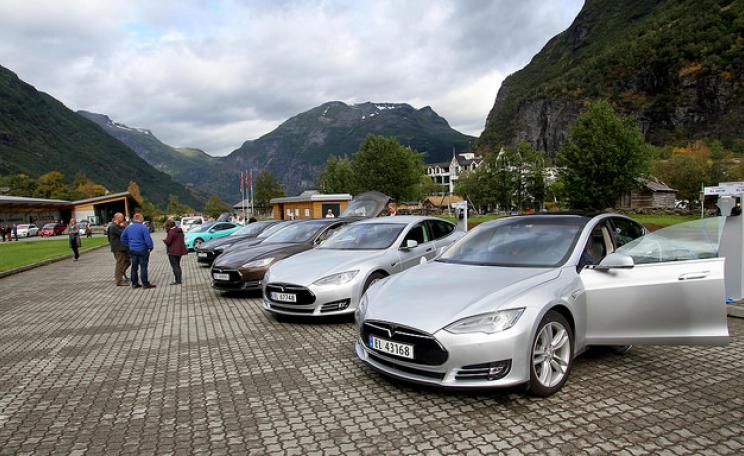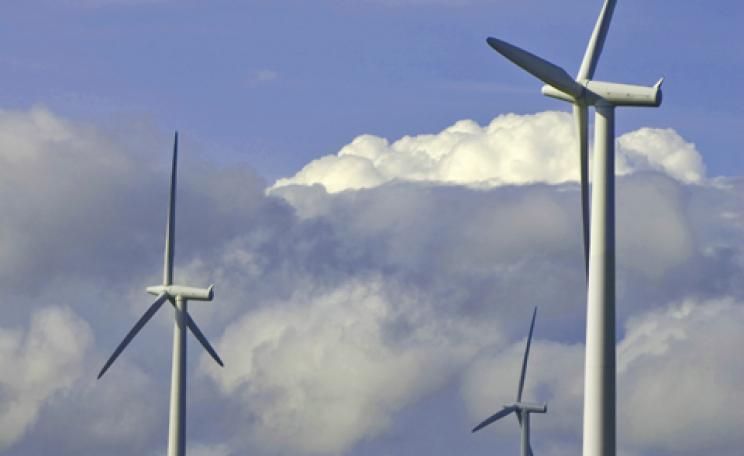In my exploration into how we portray the future, one of the most striking discoveries is that there are actually very few positive future visions out there. The more I looked the more I became aware that dystopia and ecological collapse abound almost every time contemporary culture looks even ten or twenty years ahead.
From Blade Runner and Children of Men to The Road, from The Day After Tomorrow and 2012 to 28 Days Later – the dark vision wins out every time. This is starkly contrasted with how we projected the future back in the fifties, sixties and seventies, when we had Dan Dare, Thunderbirds and Star Trek – back then it felt as if science and technology were going to take us up, up and away to exciting new places, with labour saving devices, transporters, hover bikes and jet packs.
Of course, during the eighties and nineties the ‘wonders of technology’ were clearly seen to be smashing into the limits of the planet’s ecosystems. Alarm signals from the Greens, along with Bhopal, Chernobyl and other major catastrophes, led us into a much darker way of seeing our future, based on ecological collapse and dystopia. Boys could still be heroes and lovers could still walk off into the sunset - but it would be a heavily polluted sunset.
Yet surely if we can’t imagine a positive future, we won't create one. One role of ‘the arts’ is to create spaces - both real and virtual - where inspiration, optimism and the possibility of change can be nurtured and explored. Indeed a great many of us wish we could read about or view the ‘never ending drama of human interaction’ set against a backdrop of wise choices made in response to our 21st century challenges.
So why do artists continue to choose to paint the future black?
As I began to engage with those from the arts and creative practices, a common response emerged. It seems that with very little hard evidence pointing towards a positive future, there is a fear that critics will dismiss any positive work with an all-encompassing “Yes, but that’s just a fanciful utopia”.
This is perhaps where robust scenarios such as the Centre for Alternative Technology’s (CAT) Zero Carbon Britain can help. ZCB2030 is a rigorously researched energy scenario that realistically shows what can be done towards building a brighter, more sustainable future – that we are not waiting for a new eco-widget to be invented, but can rise to what is needed with existing technology. Perhaps this kind of data could give artists the confidence required to explore what it might be like to live and love in a positive future?
With this in mind I have been presenting Zero Carbon Britain research findings to artists and writers through a series of events called ‘Case for Optimism’. The first four events have hosted leaders in the arts and cultural sectors, including artistic directors, producers, individual artists, writers, museum directors, curators, activists, educators, policy makers, energy specialists and psychologists. Participants work to develop authentic responses to the great challenges of our time, as well as reflecting on their collective role as a sector. And as a result of this project, we have also now enlisted an artist-in-residence to work closely with the ZCB research team at CAT.
To continue CAT’s engagement with the arts and explore these issues more fully, this Autumn CAT will link up with Volcano Theatre and Arts Council for Wales to host a very special event called the Emergence Summit 2012: Creating the Future. The aim of Emergence is to build direct links between the arts and sustainability fields creating a community of practice amongst people who understand the need for big, radical shifts; who want to explore and develop positive, aspirational visions of a future in which we have risen to the challenges of climate justice, whilst also addressing some of the human needs that are currently going unsatisfied.
The Emergence Summit involves two parts – a five day land journey across Wales curated by Welsh artist Simon Whitehead; followed by a 3 day conference at CAT’s extraordinary site near Machynlleth. The Land Journey traces two routes across North and South Wales forming a dual ellipses that is reminiscent of a pair of kidneys, cleansing and filtering the life-blood of the Welsh landscape. The Journey invites walkers to traverse this land in unfamiliar ways, developing a deepened dialogue, concentration and reflection of the things we take for granted. The Land Journey culminates at the conference where 200 participants will take part in a three-day event of workshops, discussions, creative practice, performance and presentation between 7th – 9th September.
It is increasingly clear that our 21st century challenges can no longer be met with 20th century approaches, including how we think about the future. Art, I believe, can offer a mirror, in particular by reflecting the incredible story of how humans access energy and how it defines our lives. It's quite possible that art will be one of the catalysts to the much-needed shift from consumer-focused, energy-intense lifestyles to something more sustainable – not to mention more creative!
Paul Allen is a researcher on the Zero Carbon Britain project at the Centre for Alternative Technology.





